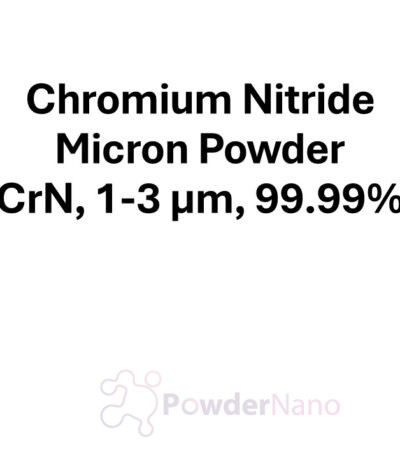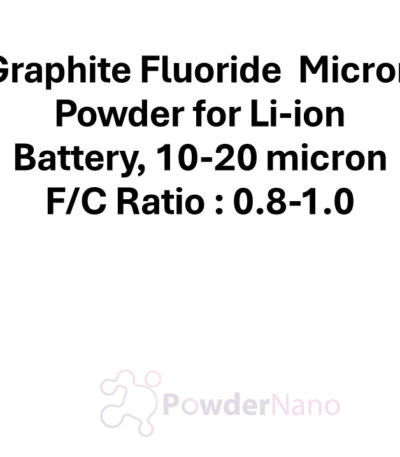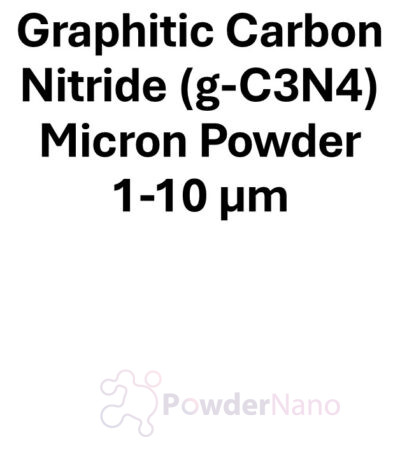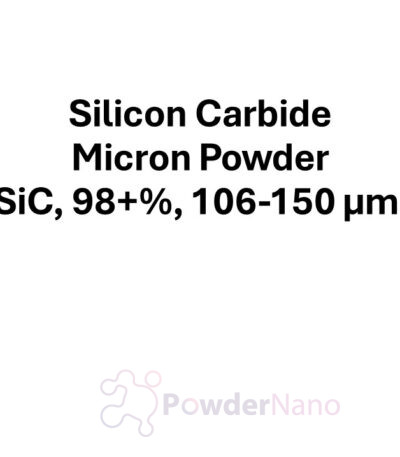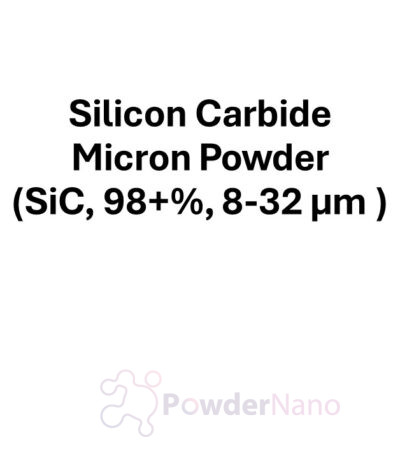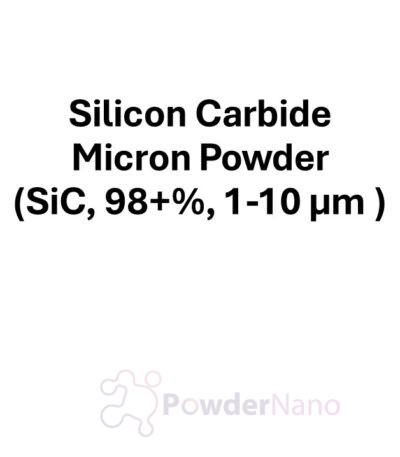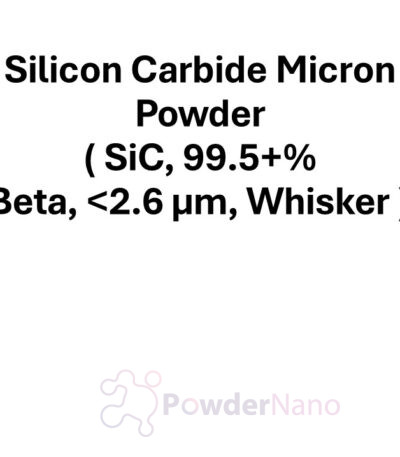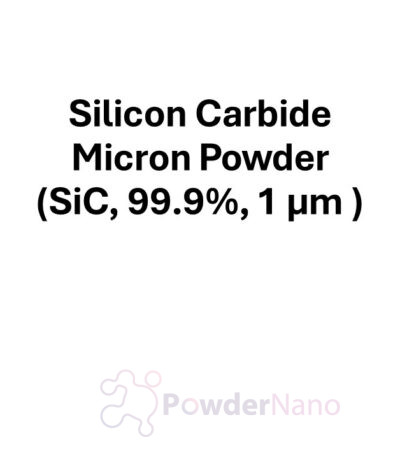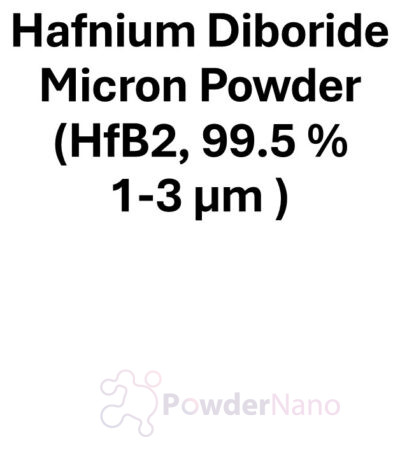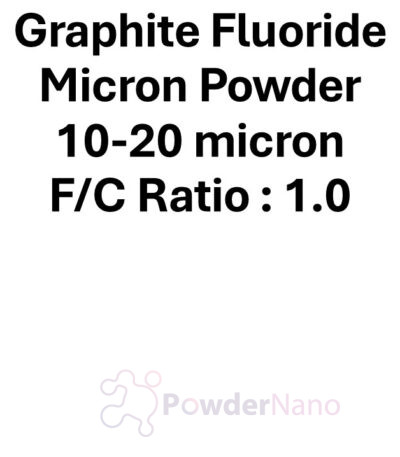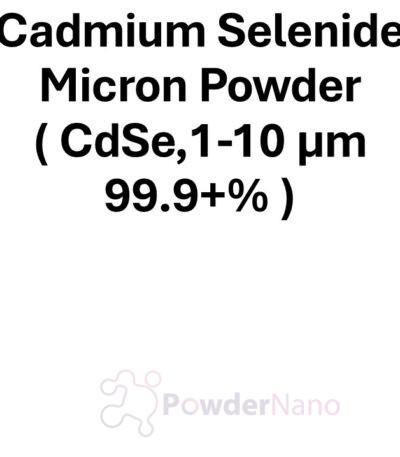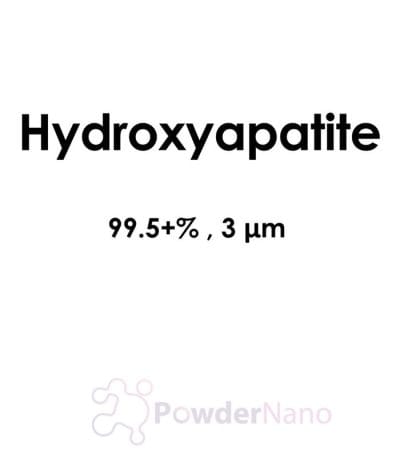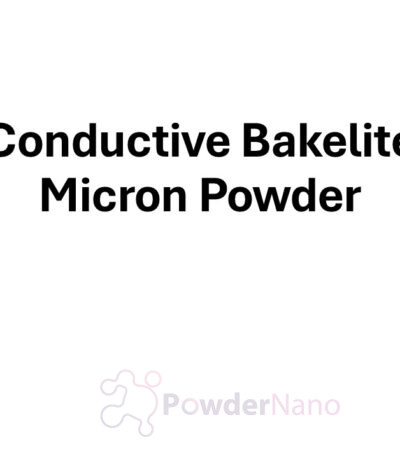Conductive Bakelite Micron Powder
Technical Specifications:
- Material: Conductive Bakelite (a type of phenolic resin)
- Purity: Typically >99% (high purity)
- Particle Size: Micron scale (usually 1-10 µm, though specific sizes can vary based on manufacturer and application)
- Shape: Typically irregular or spherical depending on the production method
- Density: Approximately 1.2–1.3 g/cm³ (can vary based on additives and formulation)
- Melting Point: Bakelite itself does not melt but softens at temperatures of around 150-200°C (302-392°F). Conductive Bakelite powder can be processed at higher temperatures for molding or integration into composites.
- Boiling Point: The boiling point is not well defined due to its thermosetting nature. It is more stable at high temperatures than thermoplastics.
- Conductivity: Conductivity properties depend on the addition of conductive fillers such as carbon black, graphite, or metal powders. These additives allow for electrical conductivity or electromagnetic shielding capabilities.
Applications:
- Electromagnetic Shielding:
- Conductive Bakelite is often used in electromagnetic shielding applications, especially in environments where electromagnetic interference (EMI) needs to be minimized. The addition of conductive fillers such as carbon black or graphite gives Bakelite the ability to shield electronic equipment and components from external electromagnetic fields.
- This makes it useful for electronics enclosures, cables, connectors, and printed circuit boards (PCBs) that require electromagnetic protection in high-frequency devices.
- Electrical Components:
- Conductive Bakelite is used for electrical components that require both insulating and conductive properties. This includes parts like switches, circuit boards, resistors, and electrical connectors. It serves as an ideal material for integrated electronics where electrical conductivity is selectively applied in specific regions of a device or system.
- The micron powder form is processed into molded electrical components that offer stable and efficient electrical conductivity when integrated with other conductive materials.
- Conductive Adhesives and Sealants:
- Conductive Bakelite is used in the formulation of adhesives and sealants that are required to conduct electricity. These conductive adhesives are used in electronics manufacturing for applications such as PCB assembly, sensor bonding, and die attachment where both adhesion and conductivity are necessary.
- The micron powder is combined with other conductive fillers to provide the required electrical connection in applications like semiconductor packaging.
- Composites for Automotive Parts:
- Conductive Bakelite is utilized in automotive parts, particularly for sensor housings, control units, and electronic enclosures that need to be lightweight yet electrically conductive. The use of conductive Bakelite helps reduce the weight of automotive electronic components while ensuring electromagnetic compatibility (EMC) in the car’s electronic system.
- The micron powder form of Bakelite is often incorporated into composite materials to provide high mechanical strength and thermal stability, important in automotive applications.
- Soldering Applications:
- Conductive Bakelite is used in soldering applications to create soldering masks and templates in electronics assembly. The micron powder provides thermal conductivity during the soldering process, helping dissipate heat evenly and ensuring better quality of solder joints.
- It is particularly useful in surface-mount technology (SMT) and through-hole soldering for precision electronics.
- Thermal Management:
- Conductive Bakelite is used in thermal management systems for electronic devices, heat sinks, and thermal pads. Its conductivity properties help in distributing heat away from sensitive components, enhancing the reliability and performance of power electronics, LED lighting, and electric vehicles.
- The micron powder form is incorporated into composite materials for effective heat dissipation.
- Wear-resistant Coatings:
- Conductive Bakelite can be used in the formulation of wear-resistant coatings for components that experience high friction and stress. The conductive fillers embedded in Bakelite provide electrical grounding while maintaining the necessary wear resistance for parts like machinery components, rotating parts, and gear systems.
- These coatings help improve the durability of automotive and industrial machinery components subjected to constant wear.
- Power Electronics:
- Conductive Bakelite is used in power electronics for components that need thermal conductivity and electrical isolation in high-voltage and high-power applications. It can be found in capacitors, diodes, power transistors, and insulated heat sinks used in inverters and converters for electric vehicles, solar inverters, and industrial power systems.
- Medical Devices:
- Conductive Bakelite is used in the manufacture of medical devices that require electrical conductivity and biocompatibility. It is used in parts such as electronic medical devices, implantable devices, and surgical instruments. The conductive properties of Bakelite are particularly useful in devices like electrocardiogram (ECG) monitors, pacemakers, and biosensors.
- The micron powder ensures the material can be processed into precise, electrically conductive components for use in sensitive medical environments.
- Research and Development:
- Conductive Bakelite micron powder is widely used in research and development for the creation of novel conductive materials, composite materials, and advanced thermal management systems. Researchers explore its use in electronic components, biomedical applications, and advanced coatings.
- The powder form is useful for testing new conductive polymers and creating new composite systems that require tailored conductivity and strength for specific applications.
Conductive Bakelite Micron Powder is a high-performance material that combines the insulating properties of phenolic resins with the electrical conductivity provided by conductive fillers like carbon black, graphite, or metallic powders. It is widely used in electronics, automotive, biomedical, industrial coatings, and thermal management applications. The micron powder ensures precise deposition and optimal performance for components that require high conductivity and mechanical strength while maintaining lightweight and versatility in their design.
